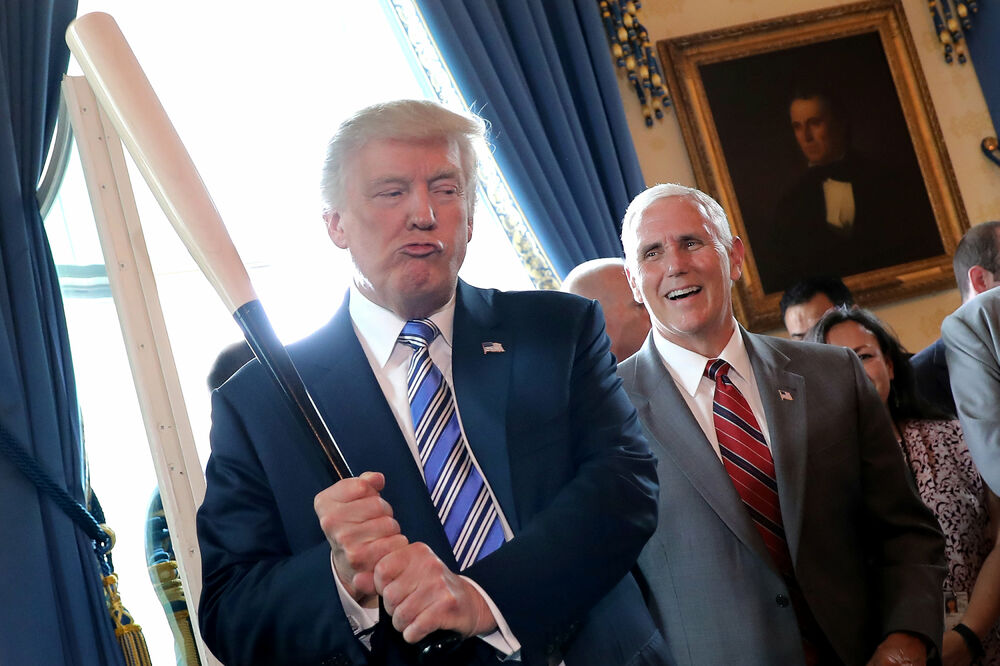It is a wonderful detail from the history of logic that the innocent Cretans had to give their name to the famous "liar's paradox". It is assumed that the Cretan Epimenides said: "All Cretans are liars". If Epimenides was lying, he was telling the truth and thus lying.
Something similar can be said about US President Donald Trump: even when he speaks the truth, many believe that he is lying and thus remains true to himself. His weak faith and provocations are common knowledge. Without any evidence, other than unnamed sources he called "extremely reliable," he claimed for many years that Barack Obama's birth certificate was a forgery. He linked the father of his opponent, Senator Ted Cruz, to the assassination of John F. Kennedy. He promoted the quack idea that vaccines cause autism and masterfully deployed suggestio falsi - say, his insinuation that climate change is a hoax created to undermine the American economy.
A thriving market for false information, forgeries, hoaxes and conspiracy theories has always existed. "History is the quintessence of intrigue," wrote Thomas Carlyle in the XNUMXth century. Peddlers of lies produce information for money or political gain; among the gullible, greedy or vengeful there are always impatient buyers. Plots are always interesting.
Modern history gives us several famous examples. The Zinoviev letter, a forgery about the participation of the British Labor Party in the Communist insurrection under the leadership of the Kremlin, was published in 1924 in the Daily Mail four days before the start of the parliamentary elections in the United Kingdom. Labor lost.
The most famous document of this type is perhaps the Protocols of the Elders of Zion. Possibly published for money, the Protocols were proof that the Jews were allegedly planning to establish world rule. The key passage reads: "(...) All this will tire the Goyim so much, that we will force them to offer us an international government that will be able to absorb all the state powers of the world and form the Supremacy at will, without any breaking." Distributed by the Imperial Secret Police in the early 1900s to justify the regime's anti-Jewish pogrom, the Protocols became the main anti-Semitic literature of the first half of the XNUMXth century. This led to terrible consequences.
So, what has changed? Today, the attention that fake news receives is conditioned by the extraordinary speed with which produced digital information spreads around the world. Previously, in order to publish false information, it was necessary to deceive more or less reputable news agencies. Now misinformation can be spread through social networks like a modern plague.
The main question is how it will affect democracy. Will the unprecedented ease of access to information free people from their control over reason, or will it strengthen to the point that democracy will simply drown in a sea of manipulation.
Both optimists and pessimists have good arguments. "Knowledge is power", say the optimists. The more information available, the better informed voters will be and, logically, the more likely leaders will be held accountable.
But information, according to pessimists, is not knowledge. In order to become knowledge, information must be structured. Until now, institutions such as schools, universities, newspapers and political parties have played this key role. Digital technology is institutionally helpless. It does not have any structuring mechanism and therefore does not control the spread of opinions that are not supported by knowledge.
Social media undoubtedly played a certain role in the development of semi-political politics that flourishes under such conditions. Populist leftists, such as Jeremy Corbyn and V. Britain, Bernie Sanders in the USA and Jean-Luc Mélenchon in France, received a significant boost due to the possibility of bypassing traditional information channels provided by social networks. Right-wing populists such as Trump, Le Pen in France and Wilders in the Netherlands also use that route. Both sides have long blamed the existing media for spreading "fake" news.
It is possible that eventually the market of information will find its balance between truth and lies. A portion of the population will always be willing to buy fake news; but most will learn to distinguish between reliable and unreliable sources.
However, if the spread of misinformation is considered a virus, then there is no natural balance but disaster. That's why we have to find it in the vaccine.
Few people trust politicians, who often have a vested interest in disinformation to get their job done. One answer is independent agencies, similar to consumer watchdogs (such as Which?). There are now a number of websites dedicated to fact-checking and debunking fake news. One of the most famous is Snopes.com, which started its work in 1994 with the aim of verifying the truth of urban legends. At the moment, Facebook is trying to flag fake news by stating that it has been challenged by independent auditors.
Regardless of the good intentions of these attempts, they suffer from one shortcoming: in order to convince themselves of the truth of the story, they still shift the responsibility onto the readers. We are all responsible for seeking out information that confirms our beliefs and ignoring information that challenges them. Facts will not be checked by those whose beliefs depend on - being checked.
There are no easy answers. It is obvious that education in the field of critical thinking, and especially in social sciences such as economics, is simply necessary. But will it be enough to counter the massive growth in the spread of false information?
Democracy depends on both the right to freedom of speech and the right to know. We must have no alternative, except how to establish a new balance between them.
The author is Emeritus Professor of Political Economy at the University of Warwick, a fellow of the British Academy of History and Economics and a member of the British House of Lords.
Copyright: Project Syndicate, 2017.
Bonus video:





